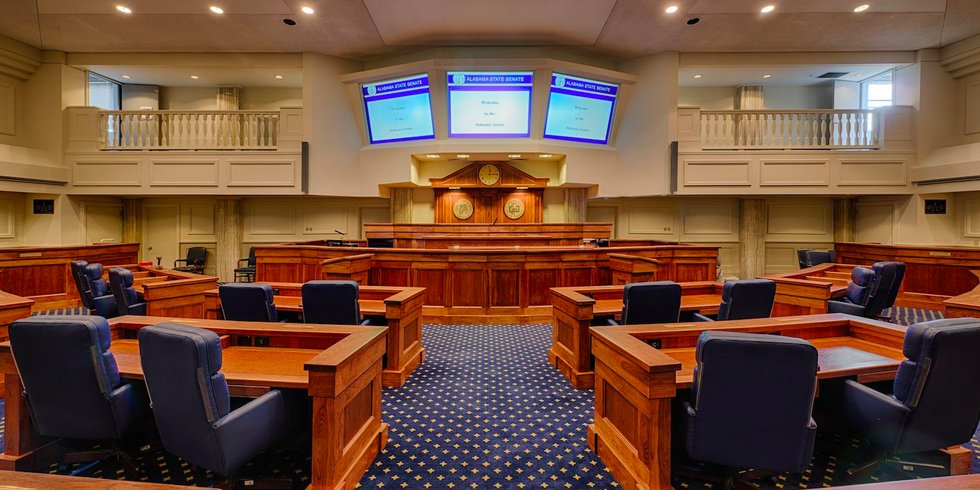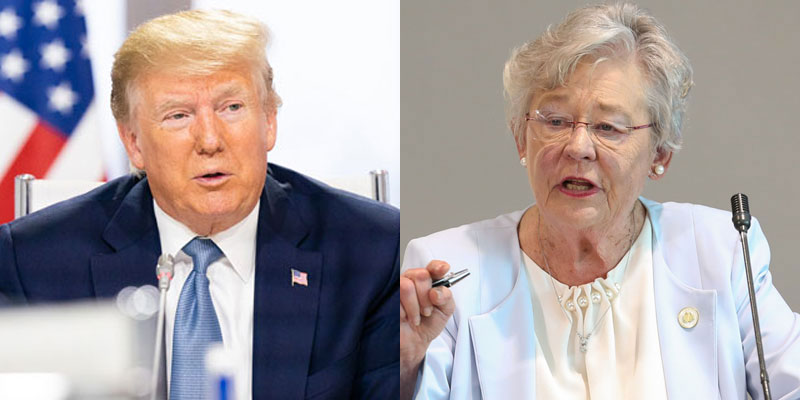
Just over a month after being sworn in for a second term, Alabama Gov. Robert Bentley rolled out the details of his long-rumored $541 million tax increase package. It marked the first time in a dozen years — since former Gov. Bob Riley’s ill-fated 2003 tax hike plan — that a Republican leader so openly pushed for a major tax increase on the people of Alabama.
At that point the battle lines began to be drawn. Anti-tax conservatives railed against the Governor’s plan and asserted he’d broken his “No New Tax” campaign pledge. Liberals joked that Republicans got their candidate, but Democrats got their agenda.
But inside state government, the ideological and political lines have not been so clearly defined. House Republican Leadership has also conceded their desire to increase government revenue, rolling out their own $150 million tax hike proposal.
And this is where it gets really interesting for anyone trying to make sense of the chaos.
The first four years of Republican control since Reconstruction (2010-2014) were largely defined by an unprecedented level of cooperation between the House and Senate, and the Legislature’s general dismissal of the Constitutionally weak executive branch.
But the latest budget maneuvering has suddenly created a loose alliance between House GOP Leadership and the Governor, both of whom want higher taxes, while Senate Leadership has steadfastly rejected their overtures.
Alabama is one of only three states in the country that maintains two separate budgets. This system is a remnant of the dark days when Democrats and their teachers’ union allies ran the state. They earmarked 91 percent of Alabama’s various streams of tax revenue to go to the projects of their choice, taking those decisions out of the hands of the people’s representatives from that point forward.
Last Thursday, Republican Senate leaders proposed moving some future tax revenue from the state’s education budget to its General Fund budget. It wasn’t a major reform measure, and it would leave a lot of work to be done to solve the state’s budgeting woes longterm. However, it would have been a significant step toward solving the short term problems without raising taxes.
Their reasoning came from this simple reality:
The Legislative Fiscal Office estimates the projected deficit of the General Fund to be $250 million, while the the Education Trust Fund Budget’s Stabilization Fund will enjoy an excess of $350 million by the end of the 2016 Fiscal Year. The Stabilization Fund was created to avoid proration in years when tax revenue does not meet projections. That’s generally a good thing. But the enormous projected surplus also proves the government already receives more than enough money to meet its obligations.
With only a few days remaining in the 2015 Regular Session, this past Thursday was the last chance for such a bill to pass the Senate and be sent down to the House without unanimous consent — which, of course, would never happen.
What happened next explains why Senate Republicans are Alabamians’ best hope to avoid a tax hike.
Around 4:45 p.m. the House sent word to the Senate that they would “close the journal” at 5 p.m., essentially shutting down the record-keeping process that allows bills to be transmitted between the two chambers. That left only a few minutes for the Senate to pass any reform measures. The Senate convinced them to extend that time by an hour, but not leaving the journal open until midnight — or at least until the other chamber adjourns — is unusual for this late in the session.
At the same time, a senator closely allied with the governor gained control of the microphone on the Senate floor and launched into a filibuster. In short, House leaders and Bentley’s Senate allies shrewdly used legislative rules to quell any hope of reform. In doing this, they blocked the short-term solution to their own doomsday scenarios, which have been touted in response to budgets that balance by relying entirely on cuts. This keeps the tax hike pressure alive, and buys them another few months to figure out a way to push through a tax increase in an expected Special Session in August.
“It’s been a frustrating day,” Senate President Pro Tem Del Marsh said after the above scenario played out. “The House and the Governor want to pass taxes. That’s obvious… (But) the will’s not up here (in the Senate) to pass any more taxes on the people of Alabama. We’ve got a situation where we have excess money.”
It is true there is a growing bloc of rank and file House Republicans who are adamantly opposed to raising taxes. Most of them still believe structural reforms are possible because they have not been inside the Montgomery bubble for too long. They flexed their muscles by stopping House Leadership’s $150 million tax plan from even coming up for a vote. They also won a concession from House leadership when Speaker Mike Hubbard (R-Auburn) appointed a commission to study un-earmarking and combining the budgets. But the way the House is structured centralizes power in the Leadership ranks, making it more difficult for conservative insurgents to build a large enough coalition to buck Leadership’s wishes.
In the Senate, power is more diffused throughout the body and rules allow a handful of united Republicans to derail almost anything. Conservative Republican senators like Slade Blackwell, Bill Holtzclaw, Paul Sanford, Jabo Waggoner, Phil Williams and several others have all openly said they will oppose any attempt to raise taxes. Combine that with their leader, Sen. Marsh, communicating to the Governor and Speaker that he would not pursue any form of tax hikes, and we’ve got ourselves a formidable barrier between the would-be tax raisers and our pocketbooks.
Taxpayers should applaud Senate conservatives for holding the line, even as many of their fellow Republicans abandon limited-government principles in the face of a manufactured crisis.
Like this article? Follow me on Twitter and let me know what you think.
— Cliff Sims (@Cliff_Sims) December 3, 2014










